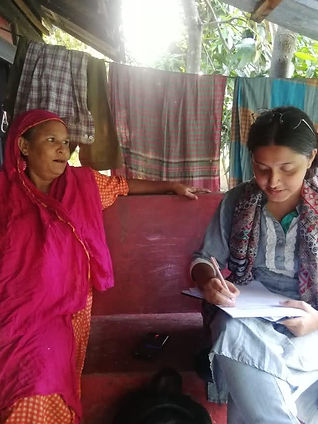Effects of spousal migration on the well-being of married women in Bangladesh
Project Overview

This research project critically examines the intricate connections between migration, gender dynamics, and well-being, focusing on the impact of husbands' migration status on the overall well-being of married women in southwestern Bangladesh. The primary goals include exploring the nuanced dimensions of emotional, social, and nutritional well-being, as well as investigating the moderating role of environmental stressors in shaping these outcomes. The research employs a robust methodology, utilizing ethnosurvey data from Bangladesh Environment and Migration Survey (BEMS). The dataset encompasses information from approximately 3500 married women and includes detailed demographic data, husbands’ migration trip details, livelihood activities, environmental stressors, and well-being indicators. The significance of this research lies in its contribution to addressing gaps in existing literature, particularly in the context of the often-overlooked mental health aspects of remained-behind women (RBW). Understandings of the comparative mental health of women with migrating and non-migrating husbands in a region susceptible to environmental vulnerabilities can offer valuable perspectives for both the academic discipline and the local community. The insights garnered from this study can provide implications for policies and interventions aimed at promoting the empowerment and overall well-being of women in similar contexts. As the complexities of migration and environmental stressors continue to unfold, understanding the experiences of these women becomes paramount for shaping responsive and effective policies on both local and global scales.

Samina Islam, MS Student